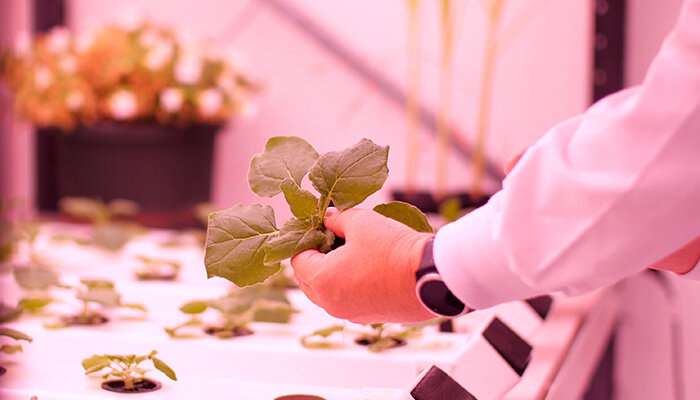This article has been reviewed according to Science X's editorial process and policies. Editors have highlighted the following attributes while ensuring the content's credibility:
fact-checked
trusted source
proofread
Repurposing Australian tobacco plants as 'biofactories' for medicines

University of Queensland researchers have shown Australian tobacco plants could be used as 'biofactories' to manufacture medicines on a large scale.
Professor David Craik and Dr. Mark Jackson from UQ's Institute for Molecular Bioscience have demonstrated native wild tobacco, Nicotiana benthamiana, can potentially produce large quantities of drugs, cheaper and more sustainably than industrial manufacturing methods.
Published in the journal Transgenic Research, it is the latest study in a 10-year IMB endeavor to make growing medicines in plants a reality.
"We are using the natural ability of plants to produce cyclotides—strings of amino acids in a circular shape—which makes them very stable and suitable as oral drugs," Professor Craik said.
"Using modern molecular biology techniques, we can effectively instruct the plant cell to produce the molecule of interest."
"The wild tobacco leaves are then harvested, freeze-dried and the molecule is processed to be turned into oral medication."
Dr. Jackson said traditional large-scale manufacturing of pharmaceuticals is expensive and often uses harsh chemicals, generating a great deal of waste.
"Harnessing plants as 'biofactories' is more cost effective as it uses fewer resources and is less wasteful, with a much simpler production process," Dr. Jackson said.
"This method can also scale up very sustainably—using just light, water and nutrients."
The researchers grew the drug T20K, which is currently in phase 1 clinical trials to treat multiple sclerosis (MS), a devastating autoimmune disease that affects the central nervous system.
Professor Craik said T20K is the first cyclotide drug that has progressed to clinical trials, but he is hopeful more will follow and reach the market.
"We have shown it is possible to scale up production of cyclotides in plants, providing a platform for growing other medications for pain, cancer or obesity," Professor Craik said.
"There is also an opportunity to build capacity for biomanufacturing in Australia with advances in vertical farming—where we can easily have a controlled environment to grow the plants."
The drug T20K is being developed by biotech company Cyxone.The Chair of Cyxone's Scientific Advisory Board and co-inventor Professor Christian Gruber was Professor Craik's Ph.D. student and a University of Queensland alum.
More information: Mark A. Jackson et al, Plant-based production of an orally active cyclotide for the treatment of multiple sclerosis, Transgenic Research (2023). DOI: 10.1007/s11248-023-00341-1
Provided by University of Queensland
















